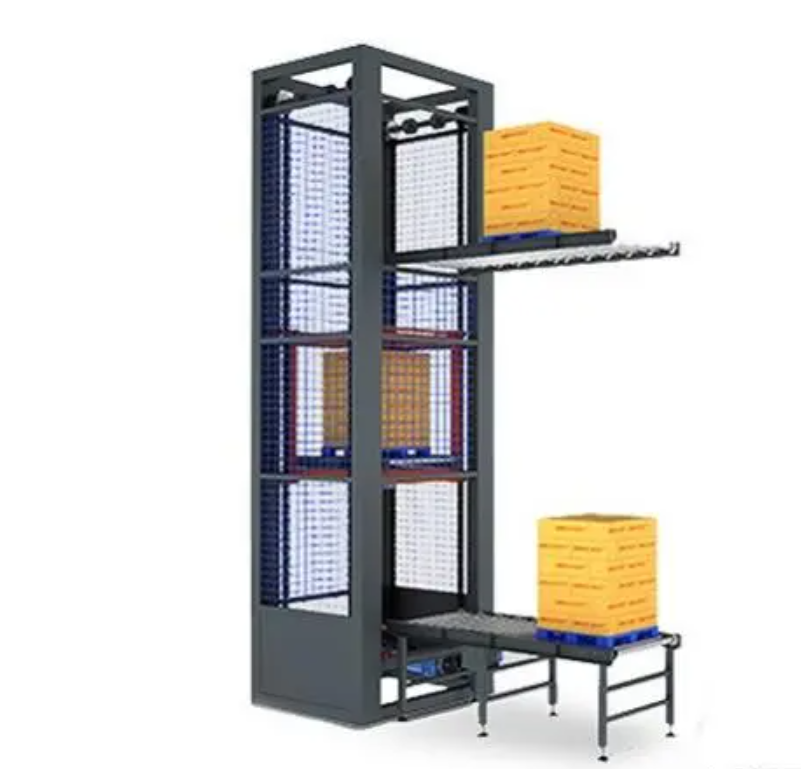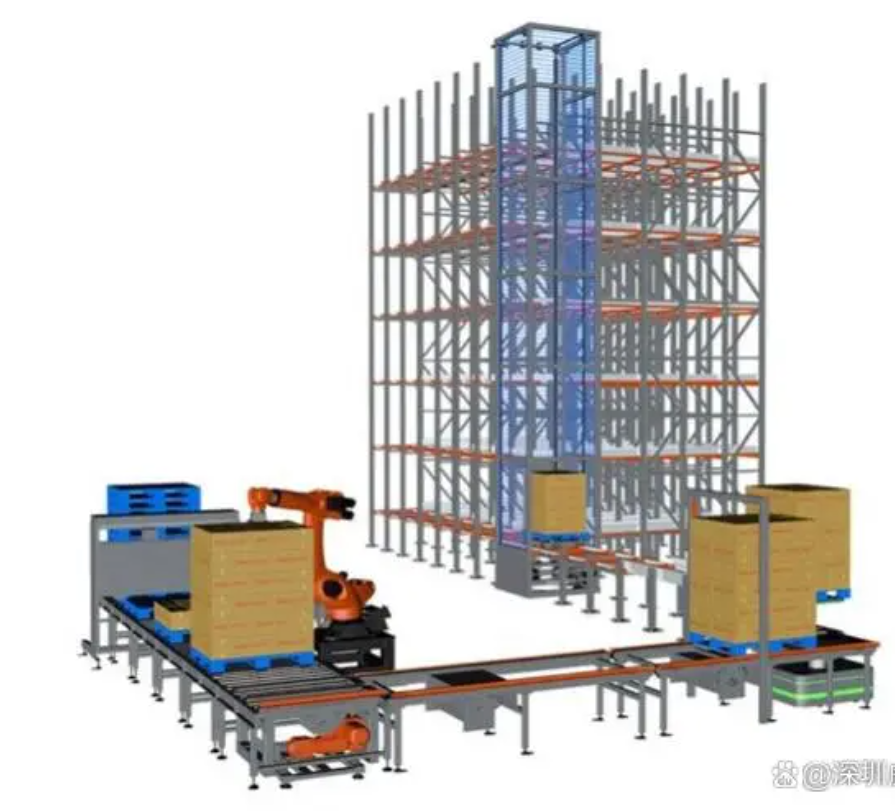Advantages and disadvantages of tray elevators.
Ssohou Company mainly produces pallet conveyor and box conveyor equipment. The team has accumulated over a hundred project cases to date. Inquiries are welcome.
WEB: www.ssohou.com
whatsapp:+86 13325001090
Email : sales@ssohou.com
I. Suitable Industries and Scenarios for Application:
Manufacturing: Reciprocating tray conveyor elevators can be utilized in manufacturing for material loading/unloading, assembly line material conveyance, semi-finished product storage and scheduling. For instance, in automotive manufacturing, they facilitate the transport of auto parts from beneath the production line to the assembly line, enhancing production efficiency and safety.
Warehousing and Logistics: These elevators are ideal for warehousing and logistics operations, such as cargo storage, picking, and sorting. In e-commerce warehouses, they elevate goods from the ground floor to higher storage areas, streamlining operations for warehouse managers.
Food Processing: Reciprocating tray conveyor elevators play a crucial role in the food processing industry, handling raw material transportation, finished product packaging, and storage. In food factories, they elevate raw materials from the ground floor to multi-story processing zones, ensuring swift material flow and storage.
Pharmaceutical Industry: They are also suitable for the pharmaceutical sector, where they assist in drug packaging, repackaging, and storage. On pharmaceutical production lines, these elevators elevate drugs from the packaging area below to storage zones above, facilitating efficient product handling.
Logistics Distribution: For logistics distribution, these elevators facilitate cargo loading, unloading, and sorting in distribution centers. They lift goods from trucks into warehouses, making it easier for workers to handle and sort items.
II. Advantages:
- High Lifting Capacity: Customizable to suit varying needs, these elevators can achieve lifting heights of several dozen meters, catering to diverse industries and scenarios.
- Strong Adaptability: Capable of accommodating different sizes and weights of trays, they are versatile for various material handling tasks.
- Efficiency: Achieving rapid vertical material transportation, they enhance work efficiency and reduce manual labor.
- Space-Saving: With a small footprint, they maximize space utilization, enabling the storage and scheduling of large quantities of materials in limited areas.
- Safety and Reliability: Equipped with safety devices like anti-fall mechanisms and limit switches, they ensure a secure working environment.
III. Disadvantages:
- High Cost: Manufacturing and installation costs can be significant, making them less economical for small and medium-sized enterprises.
- Maintenance Challenges: Due to their complex structure, maintenance and repairs can be difficult, requiring specialized personnel.
- Noise: They generate considerable noise during operation, limiting their applicability in noise-sensitive environments.

In summary, reciprocating tray conveyor elevators are well-suited for manufacturing, warehousing and logistics, food processing, the pharmaceutical industry, and logistics distribution. They offer advantages such as high lifting capacity, adaptability, efficiency, space-saving design, and safety. However, they also have drawbacks like high costs, maintenance challenges, and noise generation. Depending on specific needs and circumstances, suitable elevators can be selected to enhance vertical material handling efficiency.